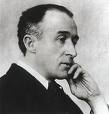Frederick Albert Theodore Delius 1862 – 1934
December 05, 2008
 Frederick Albert Theodore
Delius
CH
1862 – 1934 was an English composer born in Bradford in the West Riding
of Yorkshire in the north of England.
Frederick Albert Theodore
Delius
CH
1862 – 1934 was an English composer born in Bradford in the West Riding
of Yorkshire in the north of England.
Delius was an advocate of homeopathy (Lyndon Jenkins, While Spring And Summer Sang: Thomas Beecham And The Music Of Frederick Delius, (Ashgate Publishing, Ltd., 30 Dec 2005). Page 34) and a patient of John Moorhead Byres Moir (Frederick Delius, Peter Warlock, Barry Smith, Frederick Delius and Peter Warlock: A Friendship Revealed, (Oxford University Press, 2000). Pages 171, 173, 176), and he maintained complete faith in homeopathic medicine and would have nothing to do with more conventional treatment (Gloria Jahoda, The road to Samarkand: Frederick Delius and his music, (C. Scribner’s Sons, 1969). Pages 194 and 196).
Delius was a friend of Philip Arnold Heseltine.
Delius’s parents were German. Julius and Elise Pauline Delius had moved from Bielefeld, Germany to England to set themselves up in the woolen business. Frederick (‘Fritz’ to his family, ‘Fred’ to his friends) Delius was the fourth of their fourteen children.
Although born in England and educated at Bradford Grammar School (where the singer John Coates was his contemporary), Frederick Delius felt little attraction for the country of his birth and spent most of his life abroad, in the United States and the continent of Europe, chiefly in France. Nonetheless his music has been described as ‘extremely redolent of the soil of England and characteristic of the finer elements of the national spirit’…
Although Frederick showed early musical promise, his father was very much set against a musical career and wanted Delius to work in the family business.
Julius Delius eventually sent Frederick (apparently at Frederick’s request) to be the manager of a grapefruit plantation at Solano Grove on the St Johns River in Florida. There, west of St Augustine and south of Jacksonville, Delius continued to be engrossed in music and in Jacksonville met Thomas Ward, who became his teacher in counterpoint and composition.
While in Florida, Delius had his first composition published, and later put his memories into the Florida Suite, written at Leipzig in 1887. The house he lived in from 1884–1885 in Solano Grove was given to Jacksonville University and moved on campus in 1961. The University holds the Delius Festival each year in honour of the composer. After he left Florida, Delius taught music in Danville, Virginia and eventually moved to New York.
After his stay in New York, his father finally agreed to allow him a musical education, and consented to send him to Leipzig to study at the conservatory. He was befriended there by Edvard Hagerup Grieg, who encouraged him and became a lifelong friend.
In 1897 Delius met the German painter Jelka Rosen. They soon set up home in the French village of Grez sur Loing, near Fontainebleau, and married in 1903. Apart from a short time, when the area was threatened by the advancing German army during the First World War, he lived in Grez for the rest of his life.
In 1907 he met Thomas Beecham, who was to be the greatest champion of his music during his lifetime in the English speaking world. Until then Delius’s audience was German, principally due to the conductors Fritz Cassirer and Hans Haym.
Delius’s latter years were spent chiefly at the home he and his wife set up in Grez. These years were marred by increasing ill health. As a young man (possibly in Paris) he had caught syphilis; the long term effects of which were to rob him of his sight and to cause him to become increasingly paralysed, eventually needing use of a wheelchair.
He therefore employed Eric Fenby, who originally wrote Delius a fan letter, as his amanuensis and the great works of Delius’s final years were dictated to Fenby, who later wrote a book about the experience of working with Delius. Fenby also wrote the screen adaptation from the book for a film, Song of Summer, directed by Ken Russell, starring Max Adrian as the blind composer.
Delius was profoundly engaged in the contemplation of nature and disliked religion, though Koanga displays an interest in voodooism. He admired the writings of Friedrich Wilhelm Nietzsche, and his choice of Friedrich Wilhelm Nietzsche’s texts for A Mass of Life, the determinism evident in Irmelin and the Village Romeo and Juliet, and the living metempsychosis of the boy and the seagull in Sea Drift have prompted some to see in his work a form of pantheism.
Delius died at Grez in 1934 and was buried in a nearby cemetery on the Marlotte road out of Grez. The interment ceremony was unusual as there was no priest present, and there were no prayers or music. In 1935, in completion of his own declared wish to be buried in ‘a quiet country chuchyard in a south of England village’, his remains were exhumed and taken from France to the UK.
Jelka contracted pneumonia during the crossing, and could not attend the funeral. On 24 May an Anglican interment took place at the Church of Saint Peter in Limpsfield, Surrey. Vast crowds converged, and a section of the London Philharmonic Orchestra, together with the cellist Beatrice Harrison (of Oxted, nearby), who had given early performances of his works, performed after the ceremony, and Thomas Beecham gave the address. After Jelka Delius died, four days later, she was interred beside her husband. Thomas Beecham’s grave is about ten yards from theirs.